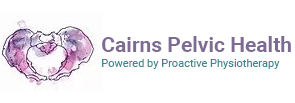Physiotherapy can be an excellent way of maintaining optimal physical strength, but often pilates is only known as a fitness regime and not often understood how beneficial it can be as a combined physiotherapy treatment.
History of Pilates
Physical trainer Joseph Pilates created Pilates in the 1920s for rehabilitation. Some of the first people treated by the concept of Pilates were dancers and soldiers who had returned from war. The objective of Pilates is a coordination of mind, body and spirit through building strength and control with precise exercises which concentrate on strengthening the body with an emphasis on core strength.
Clinical Vs Fitness Pilates
For most people, there is some confusion about the difference between clinical and fitness pilates. When a patient receives a clinical pilates program, they are receiving a specifically tailored program based on their specific injury, disease or body issue. Fitness pilates classes, on the other hand, are run in a class environment, and everyone does the same movements, so the focus is on the exercise rather than a specific purpose.
Clinical pilates is a patient-specific treatment and the exercises are designed to help manage pain and heal injuries, not just strengthen the body. A fitness pilates instructor is not qualified to prescribe clinical pilates as a physiotherapy treatment.
When you are prescribed a tailored treatment plan, your physiotherapist will work on specific movements to help ease your pain and not exercises that could make your pain worse. Examples can be when a patient has an injury on one side of the body only. Weakness and tightness can occur, causing pressure on the spine and core. A physiotherapist will work on balancing out this in the body, so strength returns evenly throughout the body.
Pilates for Rehabilitation
While pilates is effective for general health and wellbeing, it’s also excellent for rehabilitation.
Some common conditions where physiotherapists will use Pilates as a form of rehabilitation are:
- Lower Back Pain: including sprains, strains, arthritis/degenerative changes, and disc or nerve involvement.
- Posture Impairments: including kyphosis, scoliosis and workplace/ergonomic-related pain.
- Neck Pain: including whiplash, strain, arthritis/degenerative changes, and disc or nerve involvement.
- Osteoarthritis
- Patellofemoral Pain Syndrome
- Women’s Health and Postpartum: including diastasis recti, abdominal and pelvic floor weakness.
- Most orthopaedic injuries: include injuries to the shoulder, hip, knee, foot and ankle.
6 health benefits of Pilates
There are many general health benefits of Pilates due to its focus on core strength, posture and flexibility. Some of the main improvements it can make for you are:
Posture: The exercises in pilates are designed to always have your body in alignment, which helps your overall posture and is especially beneficial if you suffer from lower back pain.
Muscle tone: Pilates is very effective at using muscles you wouldn’t usually use in your daily life, in a way that tones and lengthens the muscles. It’s especially useful for older people or people who have been inactive due to surgery or weight gain and who have already lost some muscle tone.
Flexibility: With age, we tend to lose flexibility, and pilates allows you to regain flexibility in a way that is gradual, and not harmful. Flexibility is essential for avoiding injuries as we age and helps with recovery when injured.
Core strength: Pilates works the core muscles in many exercises, and one of the benefits of a strong core is flat abdominal muscles when used regularly.
Balance: Balance is more than physical, it’s a mind-body connection, and pilates exercises can help you improve your overall flexibility and restore mind-body balance.
Reduces stress: Like yoga, pilates needs concentration and a focus on breathing techniques which calms the mind becoming an excellent way to reduce stress.
Contact the Proactive Physiotherapy clinic today and talk to a physiotherapist who will listen to you and design a rapid physiotherapy treatment plan to suit your specific needs.


